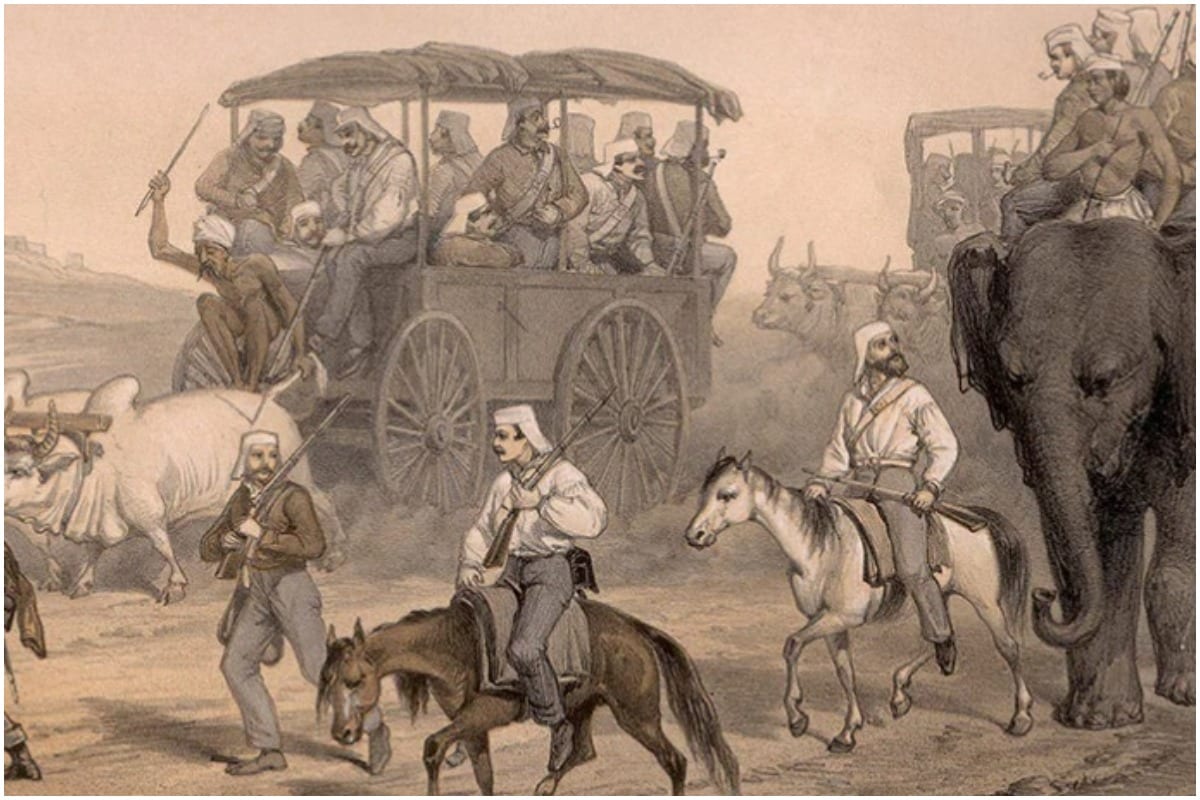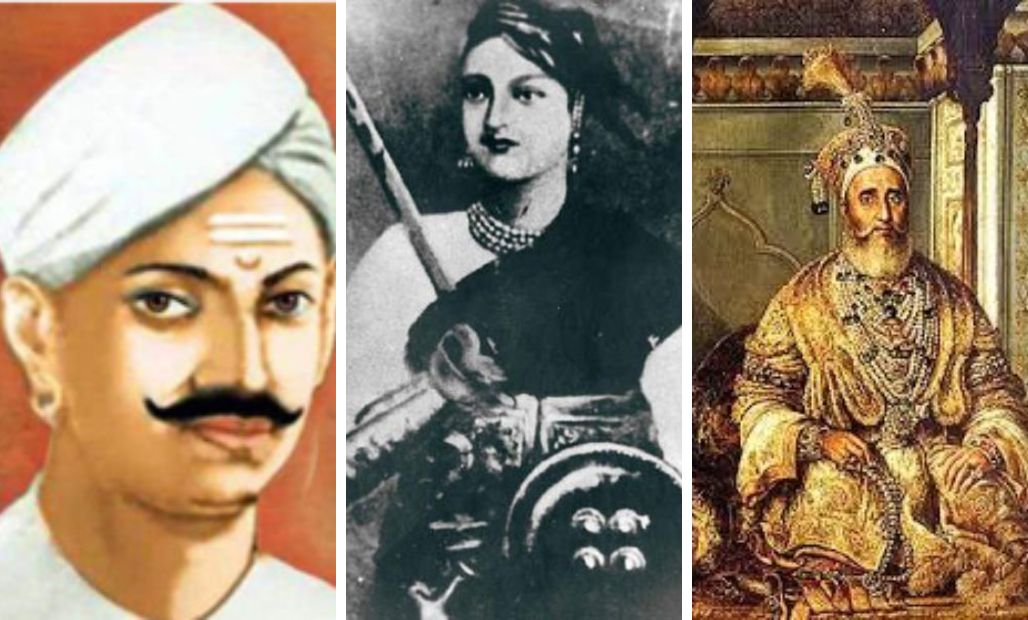The Indian Rebellion of 1857, also known as the First War of Indian Independence, was a significant event that took place 166 years ago on this day. The rebellion, which began as a mutiny by Indian soldiers in the British East India Company’s army, soon spread across much of India and saw the participation of many different groups and factions. The war lasted for over a year and had a profound impact on Indian history and the struggle for independence.
The Indian Rebellion of 1857 was not a sudden event but rather the result of a long and complex set of social, economic, and political factors. The British had been ruling India for almost a century by the time the rebellion broke out, and their rule had been marked by exploitation, oppression, and discrimination against Indians. Indians had been excluded from many of the highest positions in the government and the army, and they had been subject to heavy taxes, forced labor, and land seizures.

Credits – The Hindu Post
The rebellion was triggered by several factors, including the use of new rifles that required soldiers to bite off the ends of greased cartridges that were rumored to be greased with animal fat, which offended both Muslim and Hindu soldiers. The British also confiscated lands from local rulers and zamindars, leading to resentment among the Indian aristocracy. Religious intolerance and cultural suppression were also major factors.
The Indian Rebellion of 1857 saw the emergence of many prominent Indian leaders, such as Rani Lakshmi Bai of Jhansi, Nana Sahib, and Bahadur Shah Zafar. These leaders rallied their followers to fight against British rule and inspired many others to join the struggle for independence. The war also witnessed the participation of women in the struggle for independence, such as the Rani of Jhansi and Begum Hazrat Mahal.

Credits – News18
The rebellion was a brutal conflict, with atrocities committed on both sides. The British massacred many Indian civilians, while Indian rebels executed many British soldiers and civilians. The conflict also witnessed the emergence of new forms of resistance, such as the use of guerrilla tactics, sabotage, and propaganda. The rebellion was not a unified struggle against British rule, and it involved many different groups and factions, each with their own interests and agendas.
The Indian Rebellion of 1857 had a lasting impact on Indian nationalism and identity. It inspired many future freedom fighters, including Mahatma Gandhi, to fight for India’s independence from British rule. The rebellion also had a profound impact on the British Empire. It led to the dissolution of the East India Company and the transfer of power to the British Crown, and it marked the beginning of the end of British colonial rule in India.

Credits – Counterview
As we mark the 166th anniversary of the Indian Rebellion of 1857, we should remember the sacrifices of the brave men and women who fought for India’s independence. Their struggle against oppression and injustice continues to inspire us today as we work to build a more just and equitable society. The rebellion was a critical turning point in Indian history, and it reminds us that the fight for freedom and justice is an ongoing struggle that requires courage, determination, and unity



















































































